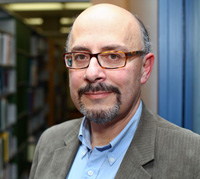The United Nations Convention on the Law of the Sea was adopted in 1982, a milestone in international law.  
Last month, on the 30th anniversary of that milestone, authorities on ocean law and policy came together in Halifax for another major conference, ‚ÄúThe Regulation of Continental Shelf Development: Rethinking International Standards‚ÄĚ. On June 21 and 22, this select group worked to identify legal gaps in activities on the continental shelf, encompassing subjects as varied as offshore oil and gas development and production, wind farms, international cables and the discharge of wastes on the seabed. Most importantly, they began to lay the groundwork to address those gaps.
Between 2010’s BP Macondo oil spill in the Gulf of Mexico and recent reports of rapidly melting Arctic ice, the health and policing of the ocean has been increasingly scrutinized by the public eye. Those in the know suggest that continental shelf development will provide both significant opportunities and risks.
Such ocean issues are close to home for Nova Scotians, quite literally ‚Äď transatlantic fibre-optic cables land in Herring Cove, and gas drilling occurs offshore Nova Scotia.
A need to address gaps
 The Continental Shelf Conference‚Äôs prestigious guests and speakers included ‚Äú30 countries, a number of international judges‚Ķ well known scholars‚Ķ and we also managed to get some student participation,‚ÄĚ reports Professor Aldo Chircop of AVĺ„ņ÷≤Ņ‚Äôs Schulich School of Law (pictured, left). He hoped the conference would ‚Äúsensitize decision makers that they need to address gaps in the setting of standards for safety and environment protection of these ocean uses.‚ÄĚ
The Continental Shelf Conference‚Äôs prestigious guests and speakers included ‚Äú30 countries, a number of international judges‚Ķ well known scholars‚Ķ and we also managed to get some student participation,‚ÄĚ reports Professor Aldo Chircop of AVĺ„ņ÷≤Ņ‚Äôs Schulich School of Law (pictured, left). He hoped the conference would ‚Äúsensitize decision makers that they need to address gaps in the setting of standards for safety and environment protection of these ocean uses.‚ÄĚ
The event had fourteen sponsors, including the National University of Singapore, the University of Bergen in Norway, the Korean Maritime Institute, the National University of Ireland Galway, and Halifax’s own McInnes Cooper law firm.
The University of Virginia was AVĺ„ņ÷≤Ņ‚Äôs co-convenor of the conference. ‚ÄúThey really wanted to partner with AVĺ„ņ÷≤Ņ,‚ÄĚ explains Prof. Chircop. ‚ÄúIt was thought that by doing this conference together, that would be one way of strengthening a burgeoning relationship.‚ÄĚ
Prof. Chircop himself was the local conference director, responsible for inviting speakers, fundraising, and overseeing the conference’s Halifax aspects. For him, the conference brought multiple highlights.
‚ÄúThe first was the opportunity to spotlight oceans at AVĺ„ņ÷≤Ņ‚Ķ to show the breadth and depth of ocean strength at AVĺ„ņ÷≤Ņ.‚ÄĚ He also notes the ‚Äúhigh degree of cooperation between the social sciences‚Ķ and the natural sciences at AVĺ„ņ÷≤Ņ,‚ÄĚ which he says resulted from cooperation between the Marine and Environmental Law Institute and the Department of Oceanography, the Halifax Marine Research Institute, and the Canada Centre of Excellence Research Chair Douglas Wallace.
‚ÄúWe were all dealing with continental shelf issues, we shared speakers, so it made sense to coordinate.‚ÄĚ
Taking the lead
Guests and speakers at the Continental Shelf conference included AVĺ„ņ÷≤Ņ alumnus Brian Flemming, who chaired the conference‚Äôs steering committee. ‚ÄúBack in 1965,‚ÄĚ Dr. Flemming reminisces, ‚ÄúI was the first person ever to teach an advanced course in international law at AVĺ„ņ÷≤Ņ.‚ÄĚ He followed up on such innovation by helping AVĺ„ņ÷≤Ņ obtain a lucrative grant for ocean studies in the seventies. ‚ÄúFocusing the law school and AVĺ„ņ÷≤Ņ on the oceans has been part of my life‚Äôs work.‚ÄĚ
To Dr. Flemming, meetings like the Continental Shelf Conference are vital to healthy discourse. ‚ÄúYou can spend a lot of time Googling everything, sit in front of your computer for days‚Ķ but it‚Äôs always better to get the people, the experts, in the same room.‚ÄĚ
Another invited speaker was Judge Zhiguo Gao from the International Tribunal for the Law of the Sea and China Institute of Marine Affairs, and also an alumnus of AVĺ„ņ÷≤Ņ‚Äôs Schulich School of Law. Judge Gao delivered the conference‚Äôs closing address.
‚ÄúIt‚Äôs a first-class international conference,‚ÄĚ he reflected after the Continental Shelf meeting, and, he adds, the conference is being held in the right place. ‚ÄúEverybody loves the ocean‚Ķ Halifax is a genuine coastal city full of ocean characteristics.‚ÄĚ
Prof. Chircop is also pleased with how the conference turned out. ‚ÄúOn the international front, this was widely recognized as a very successful conference,‚ÄĚ he reports, one that proved that ‚Äúhere at AVĺ„ņ÷≤Ņ, we are able to produce world-class meetings‚Ķ I think sometimes at AVĺ„ņ÷≤Ņ we are rather shy. We ought to better recognize ourselves for who we are and what we can do.‚ÄĚ
Since the conference was such a success, then, does Prof. Chircop see AVĺ„ņ÷≤Ņ playing host to more such world-class events? ‚ÄúMore than that,‚ÄĚ he says with a smile. ‚ÄúWe lead. We are leaders, here.‚ÄĚ

